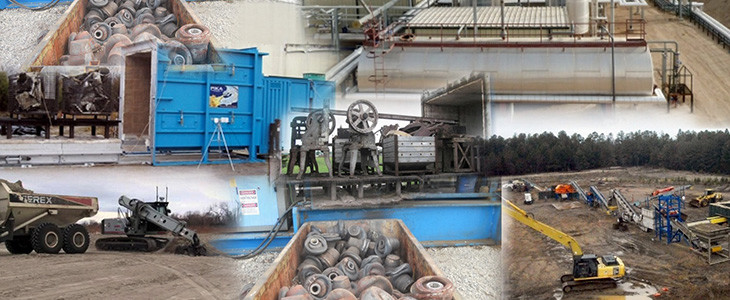Our visionary thinking leads to amazing innovations and safer more effective solutions for your projects.
We think beyond the technologies in use today to devise new processes and apply unique approaches using existing technologies. Through many years of working in the environmental and remediation areas, we have invested our time, resources, and money into developing cutting-edge technologies being used today. This is yet another of the many reasons our clients come to us with complex remediation problems, particularly in the areas of decontamination and removal of explosive and radiological contamination. Our proven development and implementation of cold-cutting technologies, construction material recovery and reduction, and range management and scrap processing systems set us apart from our competition. Our Thermal Convection System (TCS) process, for example, enables buildings and equipment to be demolished safely and also allows for more recyclable materials to be harvested from the demolition. Some of our innovations include:
- Munitions Reduction Processes that employ specially designed and adapted waterjet cutters, shredders, and pulverizers able to demilitarize MD up to 105 mm … [more]
- Thermal Convection System, developed, designed and implemented by PIKA, desensitizes and neutralizes volatile compounds at a molecular level through heat application … [more]
- Soils/Metals Segregation System utilizing magnetized, eddy current conveyor systems to separate MD and RRD from large stockpiles of soils … [more]
- Economic Oil Recovery where we designed, built, tested, and implemented an oil recovery process from oily viscous liquid (OVL) in pits at Wafra, Kuwait, for the joint operations of Kuwait Gulf Oil Company (K.S.C.)/Saudi Arabian Chevron, Inc. .… [more]
In addition to developing our own technologies, we work with other companies and our clients to test and develop innovative applications. For example, the Defense Ammunition Center asked us to assist them in a technology transfer program with Lawrence Livermore National Laboratories (LLNL) to test and implement the thin layer chromatography (TLC) application to detect the amount of stabilizer remaining in propellants. Field testing was completed in a joint effort by our staff, LLNL, and the U.S. Army Corps of Engineers, and is now a process that is in routine use. We also designed, built, and implemented the White Phosphorous Treatment Unit (WPTU) that allowed safe cutting and decontamination of WP canisters remaining after a building fire at Pine Bluff Arsenal.
Contact us and let’s work together to develop some better ways to approach your challenges.

